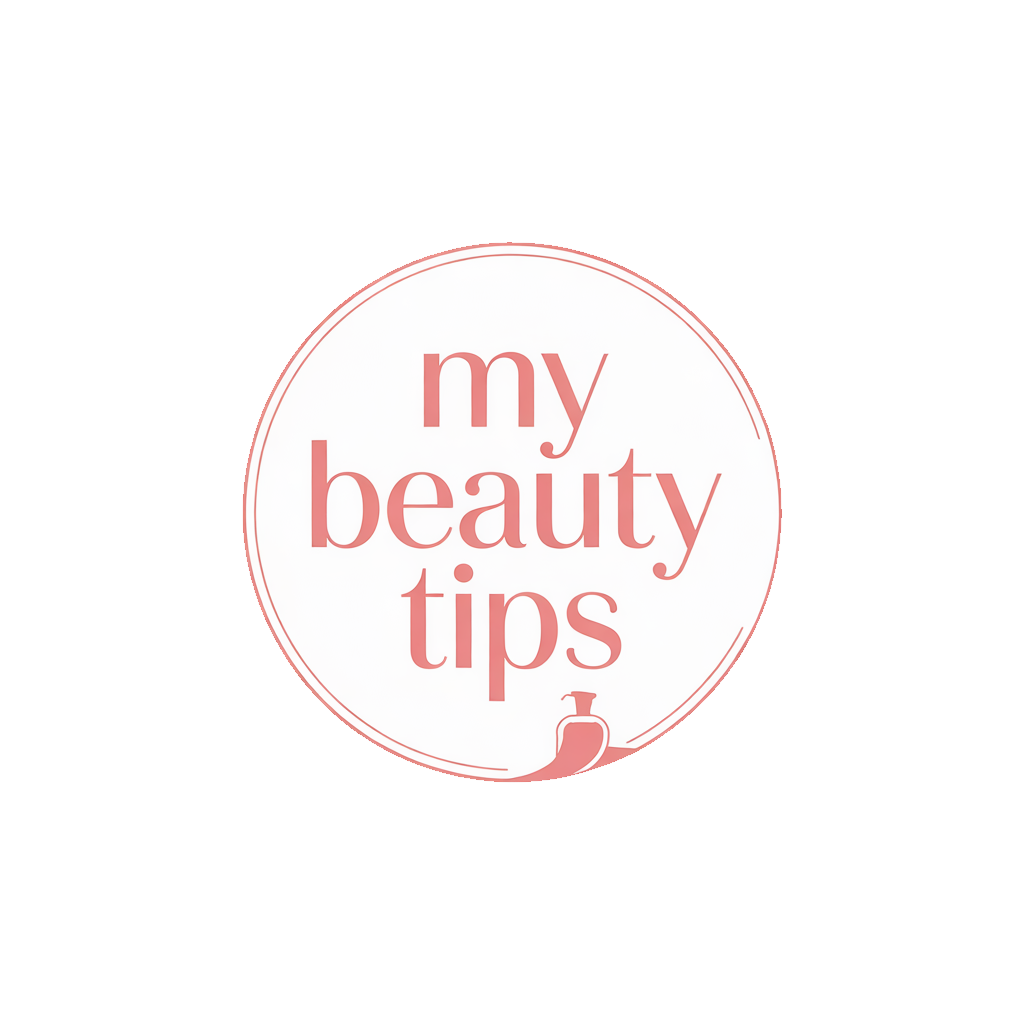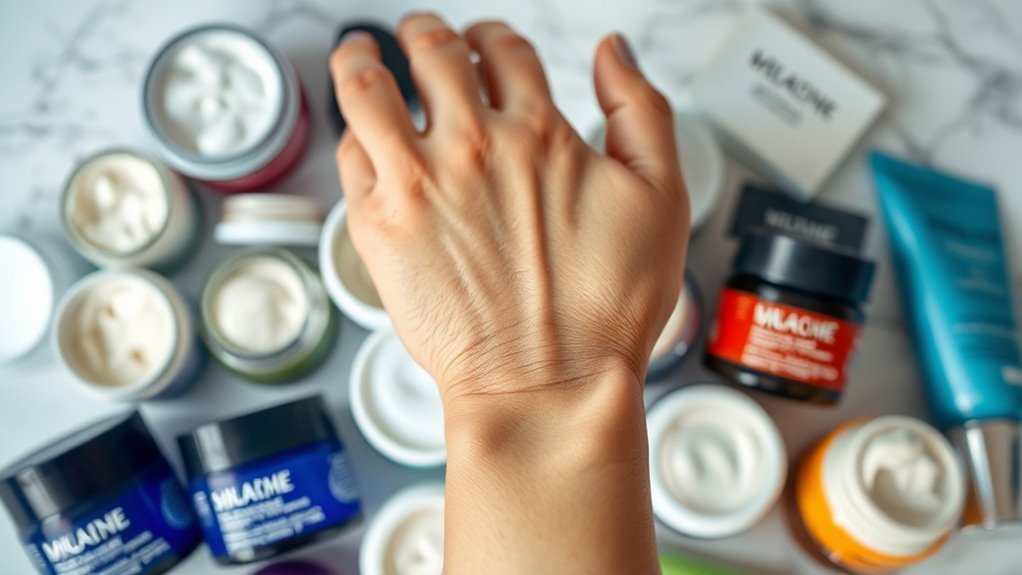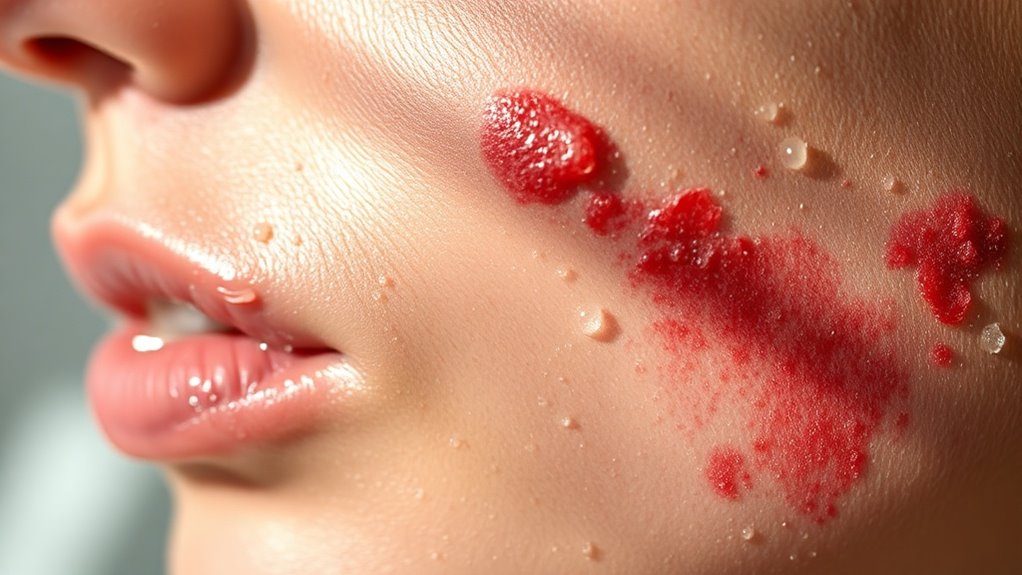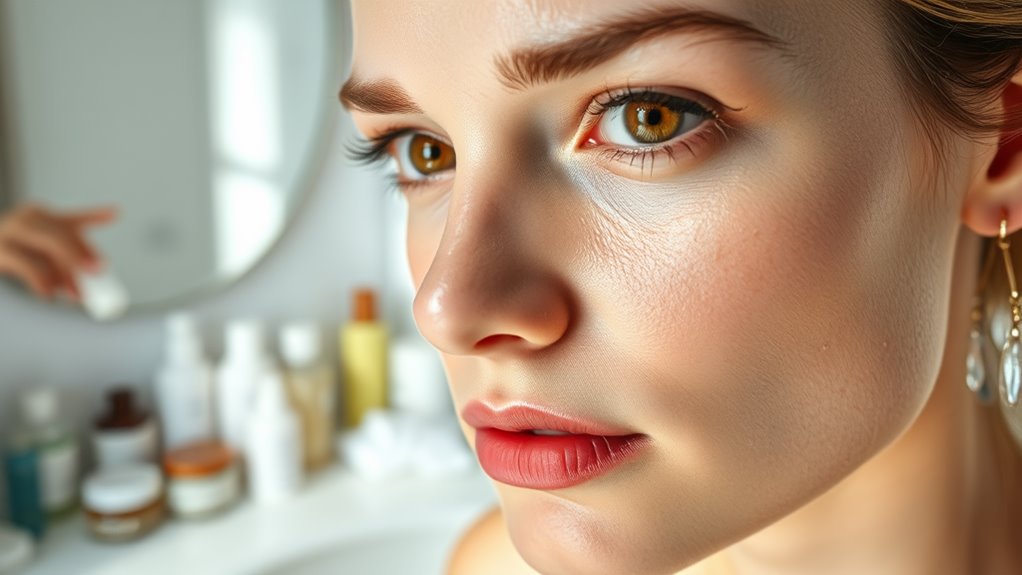How to Tell If You’re Using the Wrong Moisturizer
You might not realize that the wrong moisturizer can disrupt your skin’s natural balance. If you’re noticing signs like excessive shine or persistent dryness, it’s a clear indicator something’s off. This mismatch could lead to breakouts or irritation as well. Understanding these reactions is crucial for maintaining healthy skin. So, how do you pinpoint if your moisturizer’s the culprit behind these issues?
Unwanted Oily Shine
Unwanted oily shine can be a telltale sign that you’re using the wrong moisturizer for your skin type.
If your skin feels slick shortly after application, it’s a clear indication that your moisturizer lacks the appropriate formulation.
Products heavy in oils can exacerbate oiliness, while lighter, water-based formulas often provide better hydration for those prone to excess shine. Additionally, opting for non-comedogenic products can help ensure hydration without blocking pores and increasing greasiness.
Increased Dryness or Flakiness
If you notice increased dryness or flakiness on your skin, it’s likely a sign that your moisturizer isn’t suitable for your skin type.
This can occur if the product lacks essential emollients or humectants. Additionally, using a moisturizer formulated for oily skin may strip necessary moisture. To effectively combat dryness, ensure your moisturizer contains key ingredients like hyaluronic acid and ceramides.
Assess the ingredients and adjust your moisturizer to ensure proper hydration and skin barrier integrity.
Breakouts or Acne Flare-Ups
Sometimes, you might notice an increase in breakouts or acne flare-ups after using a particular moisturizer, which could indicate it’s not the right match for your skin.
Many moisturizers contain heavy, comedogenic ingredients that clog pores. This can lead to an overproduction of oil and subsequent breakouts.
Consider switching to non-comedogenic formulas that hydrate without exacerbating acne-prone skin conditions. Choosing gentler options can help maintain your skin’s natural balance and reduce inflammation.
Irritation or Redness
Irritation or redness can be a clear sign that your moisturizer doesn’t suit your skin type.
These symptoms often indicate an allergic reaction or sensitivity to certain ingredients, such as fragrances or alcohols.
If you notice these effects after applying your moisturizer, it’s essential to reassess your product choice.
Opt for formulations specifically designed for your skin type to reduce adverse reactions. Additionally, consider using gentle skincare products that are fragrance-free and hypoallergenic to help minimize irritation.
Limited Hydration Throughout the Day
When your skin feels dry or tight merely hours after moisturizing, it signals that your current product mightn’t provide the necessary hydration for your needs.
This might indicate a lack of humectants, emollients, or occlusives in your moisturizer.
Look for ingredients like hyaluronic acid or ceramides that bind moisture effectively, and consider re-evaluating your product to ensure all-day hydration. Additionally, incorporating highly effective ingredients can significantly improve moisture retention and enhance skin’s overall health.





